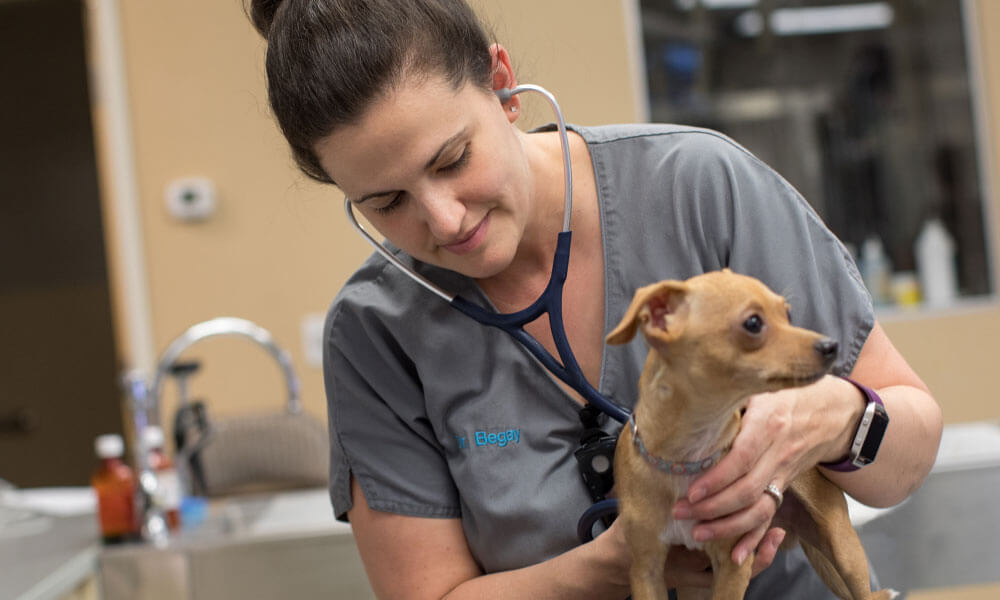Pancreatitis is a serious condition in both dogs and cats that can cause significant pain and health complications if left untreated. The pancreas, an essential organ located near the stomach, produces enzymes that aid in digestion and hormones like insulin that regulate blood sugar. When the pancreas becomes inflamed, these digestive enzymes can start attacking the pancreas itself, leading to painful inflammation. Early recognition of the signs is crucial for prompt treatment and a better outcome.
In this post, we’ll explore the causes, symptoms, and steps to take if you suspect your pet has pancreatitis.
What Causes Pancreatitis in Pets?
While the exact cause is not always clear, several factors can trigger pancreatitis in pets:
- High-fat diet: Feeding pets fatty foods, especially table scraps or greasy treats, can overwhelm the pancreas.
- Obesity: Overweight pets are more prone to developing pancreatitis.
- Certain medications: Some medications, like corticosteroids or certain antibiotics, can increase the risk.
- Genetics: Certain breeds, such as Miniature Schnauzers, Yorkshire Terriers, and Siamese cats, may be more predisposed.
- Other underlying conditions: Diabetes, hypothyroidism, or Cushing’s disease can also contribute to the risk.
Signs and Symptoms of Pancreatitis
Recognizing the symptoms early can be life-saving. While symptoms can vary, common signs in dogs and cats include:
In Dogs:
- Vomiting (often persistent)
- Loss of appetite
- Abdominal pain (your dog may arch their back or appear uncomfortable)
- Diarrhea
- Lethargy or weakness
- Fever
In Cats:
- Lethargy (cats may hide or become less active)
- Loss of appetite
- Vomiting (less common in cats compared to dogs)
- Abdominal pain (though cats may not express it as clearly)
- Dehydration
- Weight loss over time
- It’s important to note that cats often show subtler signs, which can make pancreatitis harder to detect.
What to Do if You Suspect Pancreatitis
If you notice any of the symptoms listed above, take the following steps:
- Contact Your Veterinarian Immediately: Pancreatitis can progress quickly, so timely veterinary care is essential. Describe the symptoms clearly and follow their guidance for an urgent appointment.
- Do Not Offer Food or Water: Feeding your pet during an active flare-up can worsen the condition. Wait for your veterinarian’s instructions before offering food or water.
- Avoid Home Remedies: Pancreatitis requires professional medical treatment. Avoid giving over-the-counter medications, as they can worsen the condition or interfere with veterinary care.
Diagnosis and Treatment
At the veterinary clinic, the veterinarian will perform a thorough examination and may recommend diagnostic tests, such as:
- Bloodwork: To check for elevated pancreatic enzymes and signs of inflammation.
- Ultrasound or X-rays: To assess the pancreas and rule out other causes of symptoms.
- Specialized tests: Specific pancreatic function tests may also be used.
Treatment Options
Treatment typically involves supportive care to manage symptoms and allow the pancreas to heal:
- Fluid therapy: To prevent dehydration and maintain organ function.
- Pain management: Medications to alleviate abdominal pain.
- Anti-nausea medications: To control vomiting and encourage eating.
- Nutritional support: Once stable, pets may be placed on a low-fat, easily digestible diet.
- In severe cases, hospitalization may be necessary for more intensive care.
Preventing Pancreatitis in Pets
While not all cases can be prevented, these steps can help reduce the risk:
- Avoid feeding fatty foods: Especially avoid table scraps during holidays or special occasions.
- Maintain a healthy weight: Regular exercise and a balanced diet can lower the risk.
- Regular check-ups: Routine veterinary visits can help detect early signs of underlying conditions that may contribute to pancreatitis.
- Monitor medication use: Always follow your veterinarian’s instructions regarding medications that may affect the pancreas.
Conclusion
Pancreatitis is a serious condition that requires prompt attention, but with early detection and proper treatment, many pets can recover and return to a happy, healthy life. Stay vigilant for signs of discomfort, especially during times of dietary indulgence, and reach out to your veterinarian if you have any concerns.
When it comes to your pet’s health, early action is the best medicine.
From all of us at 1st Pet Veterinary Centers, we’re here to support you and your pet every step of the way.
If you think your pet may be experiencing a pancreatitis flare-up or any other emergency, Contact Us. We are happy to help.

